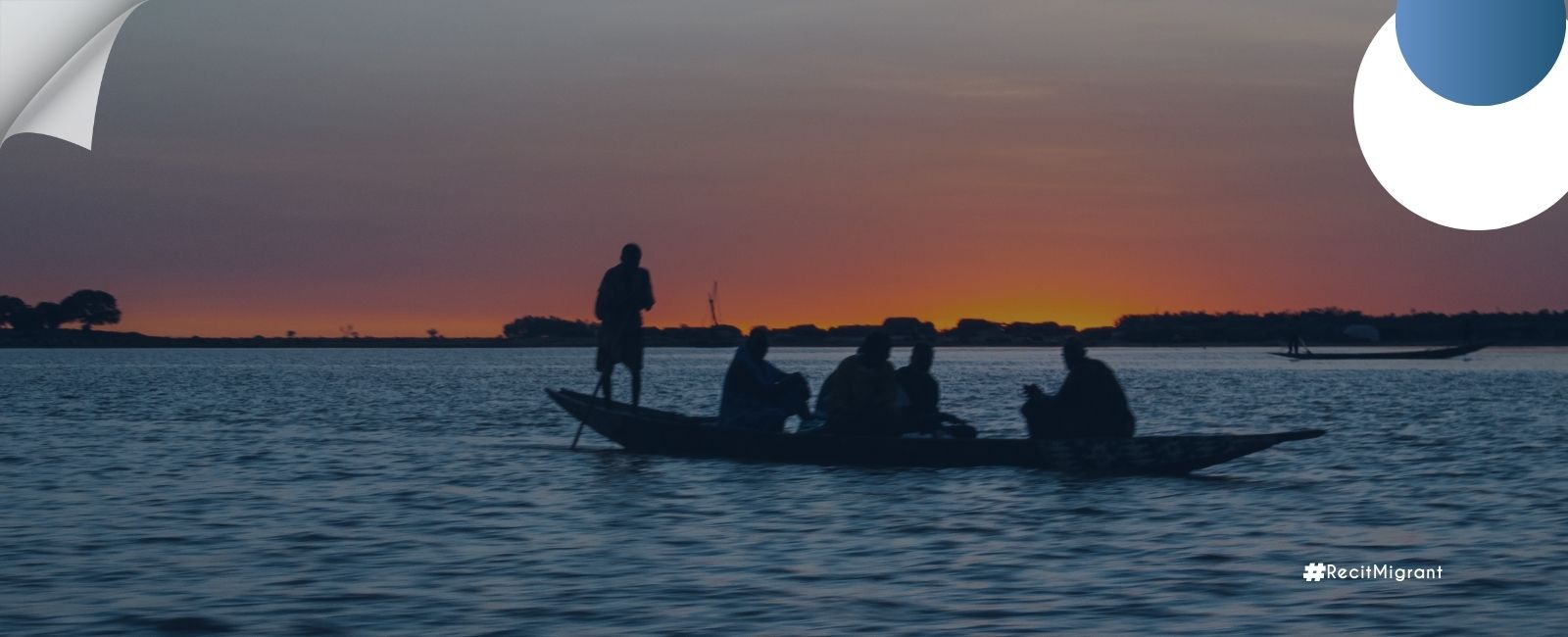

Momo Diop, President of the NGO Union pour la Solidarité et l’Entraide (Union for Solidarity and Mutual Aid) and Coordinator of Remobilisation pour le Développement (Remedev) or Development through Remobilisation, reflects on the tragedy of missing migrants. He shares his analysis and the solutions that civil society organisations, such as his own, are striving to implement.
The issue of missing or deceased migrants is rarely discussed publicly. Why do you think it is crucial to shine a light on this tragedy?
Momo Diop: It is a crucial issue. These migrants are part of our society and it is important to address this subject because they are disappearing in difficult-to-explain circumstances.
In your opinion, why has irregular migration become such a scourge today?
Momo Diop: Irregular migration is a scourge of our time and we are unable to find solutions. The consequences are enormous, affecting society, the economy and people’s mental health. For nearly a quarter of a century, we have been running workshops while suffering the consequences of increasingly harsh policies and fewer opportunities to migrate legally. The situation worsens every year, forcing people to take complicated, secret routes which often lead to tragedy, death and disappearance.
One of the major issues you highlight is the lack of accurate departure data. Why is this so alarming?
Momo Diop: The problem is that these departures are neither controlled nor recorded. We don’t know how many departures there have been or who was on board the boats, nor do we know who made it to their destination. There is total uncertainty surrounding these tragedies. This is a cause for concern for everyone, and it highlights the need for consultation between States, institutions, researchers, and civil society in order to find solutions.
Your workshop will bring together many different stakeholders. What concrete outcomes do you hope to achieve to move the situation forward?
Momo Diop: This is a multi-stakeholder workshop. As you heard during the presentation, it includes civil society organisations, institutions, government representatives, and cooperation structures. The aim is for everyone to contribute their experience and knowledge. We want to gather concrete proposals to improve the situation. All of our activities support government policies, providing inspiration for improvements and integration, enabling us to work together to bring about change.
As president of the Union for Solidarity and Mutual Aid NGO, what role does civil society play when dealing with young people considering irregular migration?
Momo Diop: Raising awareness is one of the main missions of civil society. We are part of the community – we live alongside these young men and women. We speak to them everyday, about the dangers they may face if they choose irregular migration. While we cannot prevent people from leaving, we can help them understand the risks. At the same time, we work with partners and allied countries to advocate for policy changes.
You mention the difficulties of obtaining visas. What is the link between tougher migration policies and an increase in irregular departures?
Momo Diop: In Senegal, as in other West African countries, it has become extremely difficult even to get an appointment or submit a visa application. Diplomatic missions know about the networks that exploit this situation, yet too often little is done to dismantle them. There should be no intermediaries between applicants and host countries. When you consider the very small percentage of visas actually granted, it hardly encourages young people to pursue the legal route. Instead, many turn to alternative, and highly dangerous routes. “That is most regrettable.
Recently Published
Subscribe to our newsletter!
Quick Links


